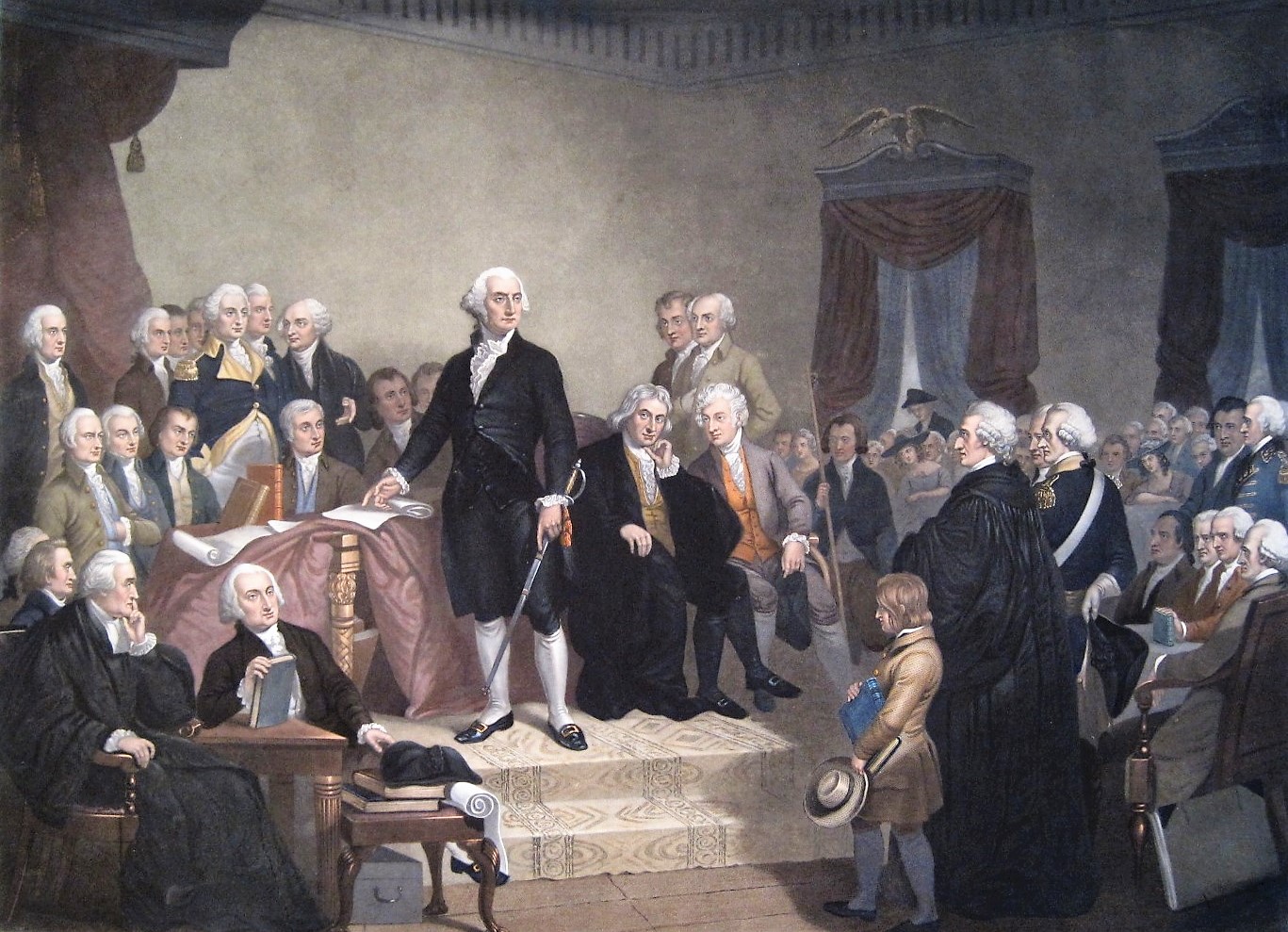In his first inaugural address, President George Washington declared that “there is no truth more thoroughly established, than that there exists in the economy and course of nature, an indissoluble union between virtue and happiness.” In a nation that held certain truths to be self-evident, this, according to Washington, was the most “thoroughly established” of all truths.
Now, in his remarkable book The Pursuit of Happiness: How Classical Writers on Virtue Inspired the Lives of the Founders and Defined America, Jeffrey Rosen has documented the Founders’ deep understanding of virtue as an essential antecedent to human happiness. Put differently, as Rosen writes, “personal self-government was necessary for political self-government.” And among the Founders, Washington was far from alone in promulgating this linkage.
But this idea did not originate with the Founders. Rosen, the dynamic president and CEO of the National Constitution Center, devoted recent years to the study of the books the Founders read. He delved into classical works of moral philosophy from Greece, Rome, the ancient Eastern writers, the Renaissance, and the Scottish Enlightenment. It was from these works that he discovered the rich literature of virtue-based happiness that runs throughout the history of the world and that so profoundly shaped the minds of the Founders and other leading Americans over the past 250 years.
Rosen’s book is brilliantly organized as a series of character studies—of George Washington, Benjamin Franklin, John and Abigail and John Quincy Adams, James Madison, James Wilson, Phillis Wheatley, Thomas Jefferson, James Madison, George Mason, Alexander Hamilton, Abraham Lincoln, Frederick Douglass, Louis Brandeis, Ruth Bader Ginsburg—all under the headings of character traits like humility, industry, and moderation once included in a list by Franklin. In striving for self-discipline and moral improvement, these leading Americans drew inspiration from cherished and timeless books.
Rosen is careful to note the ethical failures and blind spots of the Founders he profiles, especially of those who professed to stand for equality and liberty even as they enslaved fellow human beings. The Pursuit of Happiness is a catalog of people who aspired to virtue and happiness as they understood it but who sometimes lived and led in utterly contradictory ways.
Nevertheless, there is much to admire about those who read deeply and did what they could to fashion their lives according to the lessons they absorbed. Washington studied Seneca’s Morals, Addison’s Cato, and Matthew Hale’s Contemplations Moral and Divine, and he became an example of how to govern one’s own passions. Madison and Hamilton pored over works like Plutarch’s Lives and Montesquieu’s The Spirit of the Laws, works that figured prominently in their consequential arguments for the Constitution in The Federalist Papers. John Quincy Adams devoted himself to the study of Cicero, which shaped his statesmanship as a diplomat, congressman, and president. These were profoundly literate figures, and they sought, albeit imperfectly, to order their lives according to a long history of human reflection on the virtues necessary to happiness
Toward the end of the book, Rosen provides brief but powerful commentary on the enduring influence and the latter-day decline of the intellectual tradition that formed the minds and lives of the Founders. In Rosen’s telling, public education and a culture of self-improvement kept alive an awareness of personal and civic virtues rooted in foundational readings for many generations. He cites an early essay by future Supreme Court Justice Ruth Bader Ginsburg on “four great documents” that she had encountered as a student at Brooklyn Elementary Public School 238. The documents were the Ten Commandments, the Magna Carta, the English Bill of Rights of 1689, and the Declaration of Independence. These documents were “great,” she wrote as a teenager, “because of all the benefits to humanity which came about as a result of their fine ideals and principles.” Rosen then sets this kind of educational background in the context of preceding Americans who also encountered texts from the classical republican tradition:
Like the Founders…Ruth Bader Ginsburg received an education that included primary texts from classical, Enlightenment, and American history. Some Founders—such as Adams, Madison, and Hamilton—had to read and master these texts in order to graduate from college. Other great Americans, including Douglass and Lincoln, educated themselves by reading texts that they found, previously compiled and condensed, in the popular readers and handbooks of their time. Closer to our time, Justices Brandeis and Ginsburg were exposed to the classics through American public schools.
Rosen contends that we have lost touch with a classical understanding of happiness, in part because of a shift of cultural emphasis from “being good to feeling good.” Fortunately, social and behavioral psychologists have recently recovered old insights on human flourishing, though with newer vocabulary like impulse control and emotional intelligence. If this bodes well for a renewed awareness of the linkage between virtue and happiness, Rosen’s book calls us back to explore the older sources of understanding about that “indissoluble union.” As scholars, teachers, students and other readers take up this exploration and pursue happiness as the Founders and other leading citizens thought of it, we’ll all be the richer for it.









1 comment
Mel Livatino
After reading Mr. Zeiger’s review, I have made a note to get this book ASAP. The book, as reviewed, put in me in mind of two other books that I have much loved: David Brooks’s The Road to Character, which I read nine years, and Adam Gopnik’s All That Happiness Is, which I read just this week. I thank Mr. Zeiger and Jeff Bilbro for bringing this book to my attention.
Comments are closed.